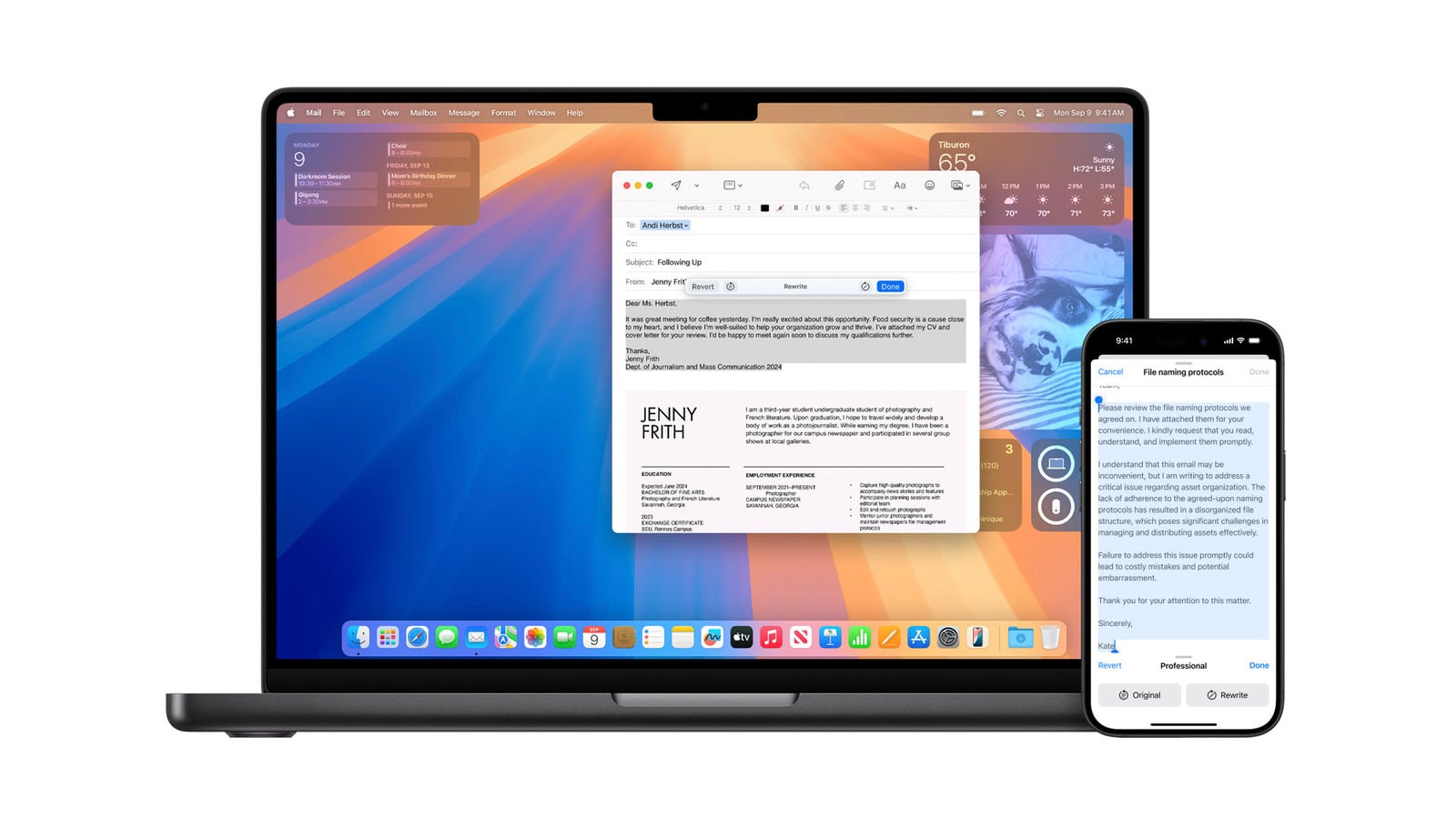Apple Intelligence: A Generational Leap, or Incremental Upgrade?
The Tech Giant's AI Push Faces a Hardware Hurdle – And a User Adoption Question.

Apple unveiled Apple Intelligence this week, a suite of AI-powered features designed to integrate deeply within iOS 18, macOS Sequoia, and watchOS 11. While positioned as a significant advancement, the rollout is significantly constrained by hardware limitations, raising questions about its immediate impact and broader adoption. The announcement, made at WWDC 2024, marks Apple’s formal entry into the generative AI race, albeit with a phased approach focusing on privacy and on-device processing where possible.
Key Insights:
- Apple Intelligence is initially available on iPhone 16, iPad Air 5+, and Mac models with Apple’s M3 chip family.
- The focus on privacy and on-device processing differentiates Apple's approach from competitors like Google and Microsoft.
- The phased rollout and hardware limitations may temper initial user excitement and adoption rates.
- Apple's integration of AI within existing apps (Messages, Mail, Safari) aims for utility over novelty.
- The success hinges on user perception of Apple Intelligence’s value proposition beyond existing features.
The generative AI landscape has been dominated by cloud-based solutions, but Apple is pivoting towards a hybrid approach, leveraging both on-device and cloud processing. This strategy is driven by Apple’s unwavering commitment to user privacy and security, mitigating concerns around data transmission and potential misuse. The announcement directly addresses pressure from competitors like Google, who have aggressively integrated Bard (now Gemini) across their product ecosystem. The rollout represents a strategic realignment for Apple, acknowledging the unavoidable presence of AI in modern computing.
The restricted availability of Apple Intelligence initially limits its market impact. While the M3 chip is present in a significant portion of Apple’s current user base, the tiered rollout creates a clear distinction between "AI-capable" and "AI-limited" devices. This could potentially drive upgrades, but also frustrate users with older hardware. Analysts predict a slow burn adoption rate, contingent on demonstrating tangible benefits over existing functionality and addressing user concerns about performance.
Apple Intelligence isn't a standalone application; it’s a collection of features woven into existing apps. Key functionalities include enhanced autocorrect and predictive text, intelligent image editing within Photos, a reimagined Siri experience, and AI-powered writing assistance in Mail and Messages. The core technology relies on Apple’s Neural Engine, specifically optimized for on-device machine learning tasks. Some more complex features, such as generative AI image creation, will require cloud processing, subject to user consent.
| Feature | On-Device | Cloud-Based |
|---|---|---|
| Autocorrect & Predictive Text | Yes | No |
| Intelligent Image Editing | Yes | Yes (Generative Editing) |
| Siri Voice Input & Response | Yes | Yes (Advanced Language Models) |
| Writing Assistance (Mail, Messages) | Yes | Yes (Generative Drafts) |
| Generative AI Image Creation | No | Yes |
Early reactions from industry experts are cautiously optimistic. > “Apple’s focus on privacy and on-device processing is a smart differentiator,” says Dr. Anya Sharma, AI analyst at Tech Insights Group. “However, the hardware limitations will undoubtedly be a point of contention. Users expect seamless AI experiences, and restricting access based on device model risks alienating a significant portion of the user base.” Competitors like Google and Microsoft are expected to ramp up their own AI integration efforts in response.
Apple’s developers face a challenge: integrating Apple Intelligence features seamlessly without compromising performance or battery life. Users are likely to scrutinize the new AI capabilities, comparing them to existing solutions and evaluating their impact on daily workflows. Apple’s marketing team will need to clearly articulate the value proposition and address potential privacy concerns to encourage adoption.
The success of Apple Intelligence will depend on continuous refinement and expansion. Apple has indicated plans to introduce more language support and features over time. The company’s commitment to on-device processing will likely drive innovation in Neural Engine technology. The phased rollout suggests a longer-term strategy focused on gradual integration and user education.
Conclusion:
While Apple Intelligence represents a significant step for Apple’s AI ambitions, its immediate impact will be tempered by hardware constraints. The long-term success hinges on demonstrating tangible benefits, prioritizing user privacy, and addressing the inevitable performance questions that arise when integrating AI into everyday computing.
 AI Browsers Are Here – And You Need to Master the Web in a Whole New Way
AI Browsers Are Here – And You Need to Master the Web in a Whole New Way Altman called some of today's professions "not real work"
Altman called some of today's professions "not real work" Spotify is working on AI tools and a new music search engine
Spotify is working on AI tools and a new music search engine